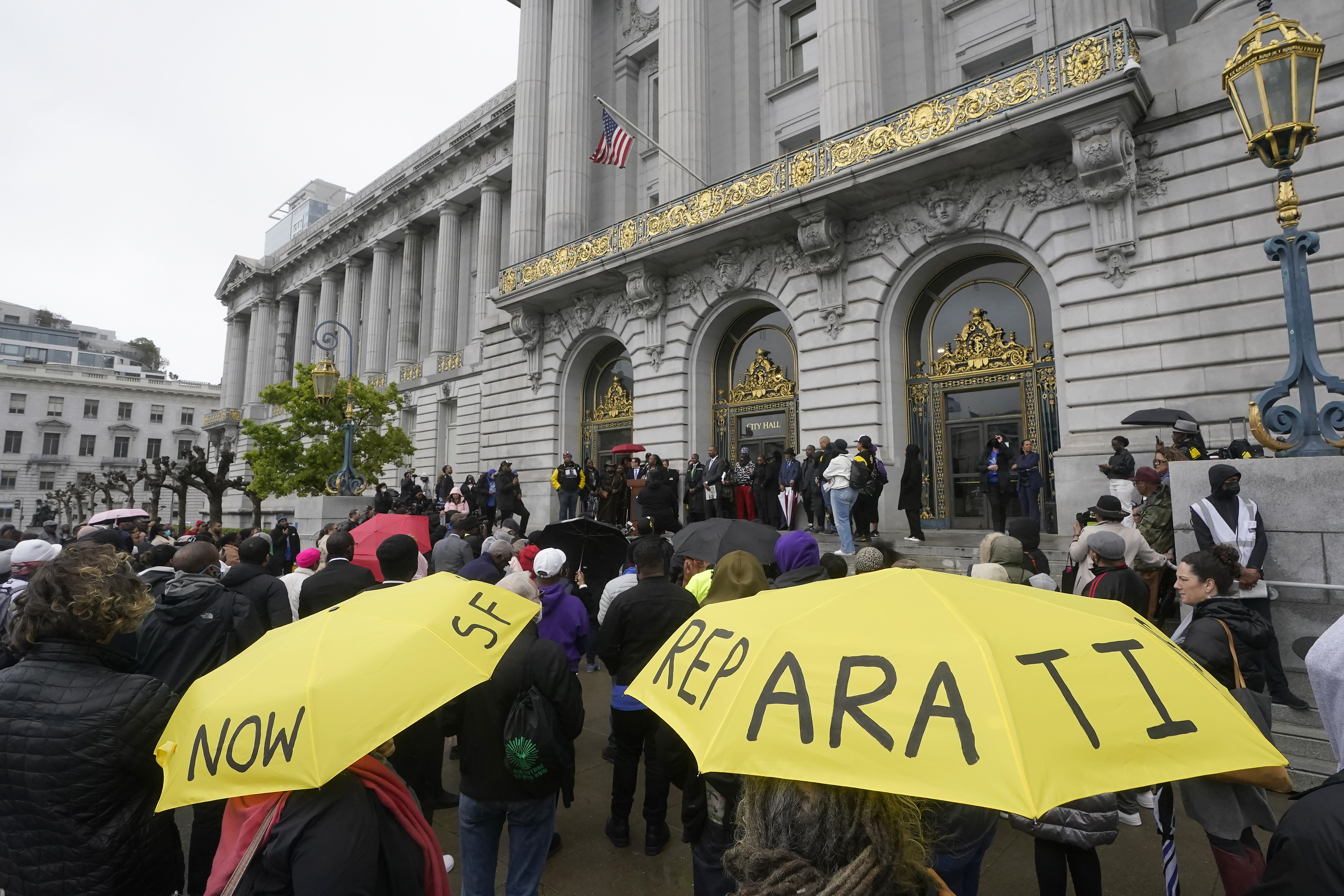San Francisco’s African-American Reparations Committee, joined by partner organizations, held a listening session Sunday at Glide Church to get more input from Black San Franciscans on what its final reparations plans should look like.
Attendees gave their visions for what could be included in the final plan, due in June this year.
Mo McNealy is an artist who was raised in San Francisco and attended city schools. She said a school for Black children is one of the many ways the city can try to repair its history of policies that enforced segregation and white supremacy.
Get a weekly recap of the latest San Francisco Bay Area housing news. Sign up for NBC Bay Area’s Housing Deconstructed newsletter.
“We need transformative change for our brighter, collective future. Only reparations can do this,” said McNealy.
She added that, for her, it wasn’t just atonement for enslavement, but was also about unfulfilled government promises and decades of taxation without providing equal services.
“Black Americans in San Francisco, and across the country, were legally excluded from economic wealth-building programs like The Homestead Act, The G.I. Bill, The New Deal, the Federal housing Association mortgages,” she said. “That’s just to name a few.”
Conversation about potential forms of reparations ranged beyond financial compensation, and often focused on systematic and on-going solutions.
“When we talk about reparations here at Glide Memorial church, we don’t focus on the monetary conversation,” said Reverend Marvin White, the church’s minister of celebration. “We talk about the ‘repair’ in reparations. And how do we repair generations and systemic oppression against Black people and, ultimately, people of color in general?”
“And how can we sustain ourselves and move forward?” said Paula Farmer, of Glide’s Racial Justice group. “And that could be through education. That could be through health care. There are so many ways that reparations can make an impact on our community.”
Through public input online and in listening sessions like Sunday’s, the Advisory Committee has already put together more than 110 recommendations for a reparations plan.
The Committee will continue to work on the final plan, which will be presented to city leaders in June.



